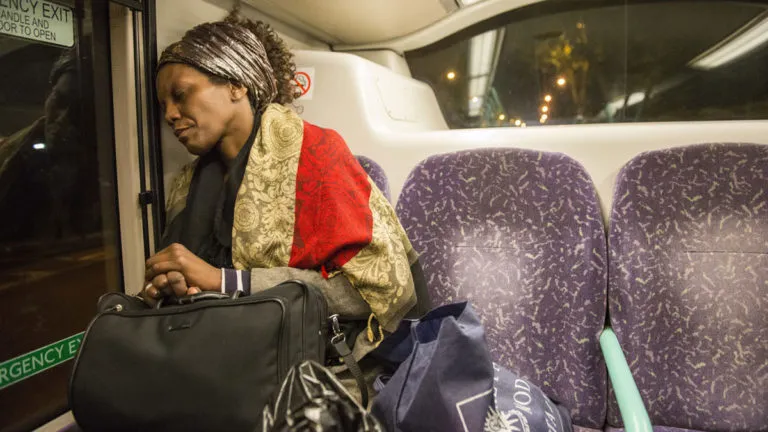Housing First: what so many street homeless people need
Published: by Deborah Garvie

Last week’s announcement from the new Secretary of State of funding for three Housing First pilots in Greater Manchester, Liverpool City Region, and the West Midlands Combined Authority is very welcome.
We have long advocated a Housing First approach as a solution for many of the homeless and excluded people with multiple and complex needs with whom we work. In 2016, we launched a two-year Housing First pilot in Manchester, which was recently extended to a small scheme for women leaving Styal Prison. We’re now developing a further service in Dorset.
The Manchester pilot has delivered positive results, with 15 out of the 16 people who’d taken part by the interim evaluation housed in social or settled private rentals – and speaking positively about the service.
As well as the clear personal and social benefits, Housing First makes financial sense. An interim progress report of our Manchester pilot calculated it could provide a fiscal payback of around £380k over five years (a potential 2.5:1 return on investment), because of money saved on hospital admissions, the criminal justice system or further evictions.
So what is Housing First, and why is it needed?
Housing First is getting more publicity, especially following the £28m Budget announcement– but not everyone knows what it is. It’s a simple concept: offer a home and intensive, personalised support to men and women who are chronically street homeless, with multiple and complex needs. This should end their homelessness, and allow them to start rebuilding their lives and confidence.
Surely, this is what should be offered to all street homeless people, you may ask. But frustratingly, this isn’t the case. From 1977, England’s internationally ground-breaking homelessness legislation has led the way in establishing the concept that if you’re homeless, you should be rehoused – regardless of any problems you might be dealing with, such as drug dependency or poor mental health.
But the legislation limits rehousing to people who are ‘unintentionally’ homeless and in ‘priority need’. For lots of street homeless people, these two tests bar them from statutory rehousing. It’s why you see them on the streets.
A home is the foundation
They may be offered a hostel place, but it’s often via the ‘staircase model’, which requires people to progress from day centres (often conditional on engagement with treatment services) to direct-access hostels, through supported hostels, and semi-independent shared housing until they’re deemed ‘housing ready’ for their own, independent home (with or without support).
This can take years – and create a catch 22. People with multiple and complex needs can struggle to cope in a shared environment because of the impact that other residents can have on their mental health or level of drug use.
Housing First recognises that people need the dignity, privacy and comfort of their own self-contained home (studio or one-bed) to move forward at their own pace and in their own way.
Access to suitable homes is one of the core international principles of Housing First, initially developed in the USA and Europe. In Finland, where this approach has resulted in the lowest street homelessness in Europe, around 2,500 new dwellings were constructed for the Housing First scheme. In England, the early 1990s’ Rough Sleepers Initiative built almost 4,000 dwellings in London to reduce rough sleeping.
Support is the key
But without support to manage the tenancy and start rebuilding their lives, people with multiple and complex needs can face isolation, eviction and further homelessness. So unconditional, flexible and personal support to manage the tenancy is also a core principle.
Our innovative pilot builds on the international principles by co-producing services to give service users more autonomy and choice. We also offer peer mentoring from people with lived experience, who understand the practical and emotional difficulties they face_._
Housing First must not be seen as a single-model solution for ending street homelessness. It isn’t suitable for everyone, such as those who don’t want to live on their own or who have lower support needs (intensive support is costly). Choice should be the watchword in providing housing options and support to homeless people. But, it’s certainly one solution to help people with multiple needs off the streets.
- Read more about our pilot, Inspiring Change Manchester Housing First